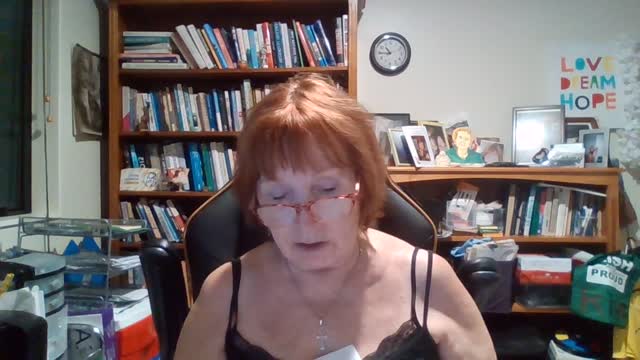
THE DEFENDER NZ ‘EUTHANASIA ACT’ AND COVID DEATHS- ZILCH TRANSPARENCY
DefendNZ Sought from the (OIA) Official Information Act from the Ministry Of Health, which is reported by DefendNZ has left National Party Simon O’Connor disappointed but not surprised as the Ministry of Health says that patients with COVID19 could be eligible for euthanasia, assisted suicide in New Zealand. As in the light of the serious deficiencies in David Seymour’\s ‘End Of Life Choice Act (EOLCA) concerns have been raised by healthcare professionals.
COVID19 IN RELATION TO EUTHANASIA: The OIA Request asked the following question: “Could patients who are severely hospitalized with COVID19 potentially be eligible for assisted suicide or euthanasia under the Act if a health professional viewed their prognosis less than 6 months”?” The Defender NZ wanted clarity from the Ministry Of Health about this issue. The Defender refers to the precarious position when it comes to COVID19 and hospital resources and what could result in pressure to utilize euthanasia and assisted suicide as tools to resolve such a serious crisis, as overseas commentators had raised the prospect of unethical motivations since early in the pandemic. The Defender referred to the tragic case of a Canadian woman who had an assisted suicide to avoid another COVID19 lockdowns, thus highlighting exactly why caution is warranted in relation to COVID and euthanasia.
TERMINAL ILLNESS IS SUBJECTIVE: The lack -of stringent safeguards of Seymours Euthanasia Act has raised red flags, I myself in researching the Act have seen that there are some dangerous concepts in this Act. Therefore it appears to me its quite creditable to seek a response to this question through OIA to the Ministry Of Health, especially where there are vulnerable elderly people isolated and in lockdown, not seeing family, a situation that no-one has ever envisaged would happen. The Ministry of Health responded to the Defender on Tuesday 17th December 2021. The response was “There are clear eligibility criteria for assisted dying. This includes that a person must have a terminal illness that is LIKELY to end their life within 6 months. Then the response goes onto say “A terminal illness is most often a prolonged illness where treatment is not effective. (the EOLC Act states that ‘eligibility is determined by the attending medical practitioner (AMP) and an independent practitioner. These are the serious concerns that have been raised “Firstly there is nothing CONCRETE about the PHRASE ‘MOST OFTEN” in fact its inclusion in this specific context clearly suggests that the Ministry Of Health considers the definition of ‘TERMINAL ILLNESS’ to be ‘subjective’ and’ open to interpretation’. The next sentence on the MOH response appears to back this up, the MOH considers the attending medical practitioner (AMP) and the independent medical practitioner to be empowered by the EOLCA to make the determination about ‘what does and does not qualify as a terminal illness’
PROLONGED ILLNESS: The Defender concludes “In the light of the vague interpretation, it is reasonable to suggest that COVID19 could be classed as a terminal illness depending on the prognosis of the patient and the subjective judgements of the AMP and independent medical practitioner. “This feels like we are being sold one thing and been delivered another”, said a spokesperson from The DefenderNZ. In the final paragraph the Ministry Of Health added “Eligibility is determined by a case by case basis, therefore the Ministry cannot make definitive statements about who is eligible. In some cases a person with COVID19 may be eligible for assisted dying” The term ‘PROLONGED DESEASE’ is extremely fraught and highly subjective in nature. How does the Medical Practitioners determine an illness is a prolonged illness, and that persons life will end in 6 months, many medical professionals have been wrong in determining the time that a person life is going to end. DefendNZ had created a petition to Parliament calling for urgent amendments to the Euthanasia Act. Scoop NZ reported 19th December 2021 An Official Information Act reply to #DefendNZ, from the Ministry of Health, which says that patients with COVID-19 could be eligible for euthanasia, has left National MP Simon O’Connor disappointed but not surprised., this news article confirmed Defend NZ concerns
CATEGORIZING HEALTH PROFESSIONALS: The Scoop News Article includes:- The End of Life Choice Act doesn’t offer any clarity or robust safeguards that would put this matter beyond doubt. Instead it does just the opposite, leaving the door wide open for abuse. When we put this matter to National MP Simon O’Connor, he expressed concerns about what clearly seems to be an expansion of the new law less than a month after it came into force. “When New Zealanders voted in the referendum in 2020, did they anticipate the law could be used for COVID-19 patients? The wording of the law was always deliberately broad and interpretable, placing far too much into the judgement of the doctor.” In 2022 the government made changes to the Health Practitioner Status as to how a qualified health practitioner can carry out some activities that they could not before, these activities prior to this could only be done by a medical practitioner. Changes across eight Acts amend references to medical practitioners to include health practitioners including nurse practitioners, registered nurses and, in one instance, pharmacist prescribers. By replacing the term ‘medical practitioner’, other health practitioners who are suitably qualified will be able to use the full range of their skills and training in treating people.
HEALTH PROFESSIONALS COMPETENCE: Nursing is a regulated profession, and it is important that nurses understand the requirements of regulation, their obligations under the Health Practitioners Competence Assurance (HPCA) Act 2003 and what this means in terms of their professional responsibility and accountability. It is the responsibility of every nurse to know and understand the legislative frameworks they work within. The Health Practitioners’ Competence Assurance Act was passed in September 2003 and has undergone several amendments since then. The HPCA Act (2003) was developed in response to: very public examples of medical error; demands from lobbyists to make health professionals more accountable and respect health care consumers’ rights; needing to streamline some of the bureaucratic processes by having main health professional groups under one piece of legislation; needing to update older legislation, like the 1977 Nurses’ Act. The principal purpose of the Act is to protect the health and safety of members of the public by providing for mechanisms to ensure that health practitioners are competent and fit to practice their professions.
The Health Practitioners Competence Assurance (HPCA) Act (2003) includes provisions that:- Prohibit persons who are not qualified to be registered as health practitioners of a profession from claiming or implying to be health practitioners of that profession. *Prohibit persons other than registered health practitioners of a profession with current practicing certificates from claiming to be practicing the profession. *Prohibit health practitioners from practicing their professions without current practicing certificates or from practicing their professions outside their scopes of practice. *Authorize the making of Orders in Council restricting the provision of the whole or part of certain health services to health practitioners who are permitted to perform those activities by their scopes of practice.
HEALTH PROFESSIONALS DISCIPLINARY TRIBUNAL: The Act also sets out conditions a health professional must meet in order to practice; provides mechanisms for improving the competence of health practitioners to provide protection from practitioners who practice below that required standard of competence or are unable to perform the functions required; provides for each regulatory authority to establish a professional conduct committee to investigate complaints about health practitioners; and provides for the establishment of a single tribunal, called the Health Practitioners Disciplinary Tribunal, to hear charges brought by the Director of Proceedings or by a professional conduct committee against a practitioner. Professions currently regulated by the Act (2003) include: Chinese medicine services *Chiropractic *Medicine *Dentistry *Occupational therapy *Optometry and optical dispensing *Nursing *Midwifery *Medical imaging and radiation therapy *Dietetics *Medical laboratory science. Anesthetic technology *Osteopathy *Paramedic services *Pharmacy *Physiotherapy *Podiatry *Psychology and psychotherapy.
MIDAZOLAM INJECTIONS AND DEATHS: NZ Herald reported 11th July 2023 that a NZ Health worker is under investigation for raising assisted suicide with a suicidal patient. It was one of eight complaints made to the Health and Disability Commission about the Assisted Dying Service in the last year. So far, no one involved in the service had broken the law. ResearchGate reported January 2023 there were excess deaths in the UK: Midazolam and Euthanasia in the COVID 19 Pandemic. It was found that a spike in deaths were not caused by COVID19 this was largely absent but was due to Midazolam injections, with excess of all deaths in England during 2020. The widespread use of Midazolam in the UK suggests a possible policy of systemic euthanasia. Australia at this time were assessing the statical impact of COVID19 injections on excess deaths which is reported to be relatively straight forward. It was reported that the iatrogenic pandemic in the UK was caused by euthanasia deaths from Midazolam and also it is highly likely caused by COVID19 injections. It was through spikes shown in stats at the time when elderly people were given Midazolam and COVID jabs that this was determined by researchers. (through Macro data)
MORE PEOPLE DIE THAN NEEDED TO DIE: Dr John Campbell in his You Tube video explains why there is a question mark around Euthanasia and End Of live and Assisted Suicide. Did more people die from the Pandemic than needed to die? Dr Campbell says there is a serious National question in the UK as to what the UK apply to the Pandemic and ongoing into the future “did more people die in the Pandemic than needed to die and did some people die as a result of the medical interventions that were recommended at the time. (Dr Campbell shows the spikes in several graphs of deaths). He speaks of the guidelines around breathlessness referring to an opioid and a benzodiazepine an opium based drug like morphine and the bendo-benzodiazepine as they talk about this as namely midazolam, this is usually used for those dying of cancer so that they have a peaceful death. Dr Camerson says under these situations all is ok but for an infection such as COVID19 this is fundamentally a mistake that was made in the transfer guidelines . Medication used at the end of life and assisted dying for an infection that most people can get completely better from
JABBING THE ELERLY WHO ARE FRAIL: Here in New Zealand Newshub reported on 18th January 2021 ‘COVID19” No cause for alarm after 29 elderly people die in Norway following Pfizer jab- says expert’. The Norwegian Medicines Agency said in a statement some common reactions to the vaccine may have contributed to their deaths, which was to be expected in frail patients. University of Auckland vaccinologist Helen Petousis-Harris said there’s no indication the two are linked and the virus itself poses a much greater threat to the age bracket.. However she also added I think this is something that we have expected,” she told Newshub. “When you start vaccinating the extremely elderly – these are very, very frail people – you are, by chance, going to see deaths occurring shortly after.”. The deaths prompted the Norwegian Institute of Public Health to suggest in a statement the vaccines may be too risky for the very elderly and terminally ill. “As a result, the Norwegian Institute of Public Health has updated the COVID-19 vaccination guide with more detailed advice on vaccinating the elderly who are frail. “Several reports of suspected adverse reactions are received on a daily basis and are continuously assessed.”. The New Zealand Government has signed agreements with a total of four companies to secure enough vaccine doses for its entire population, with the rollout expected to begin in the second quarter of this year.
COVID POSITIVE TEST DETERMINES COVID MORTALITY UN NATION STATES (WHO): Mainstream media including RNZ and also Ministry of Health NZ reported that the measuring and reporting of COVID19 deaths had changed. The Ministry of Health that week reported deaths of COVID19 at (25th March 2022) But these figures are not transparent there is another story behind the figures reported. The way COVID19 deaths were being recorded had changed. It was early in the March that Ashley Bloomfield announced a change in the reporting of COVID19 mortality rates in NZ. From the 10th March onwards deaths were to be automatically reported if a person died within 28 days of a positive COVID19 test result. This same system was to be used worldwide as a request from the World Health Organization (UN). So if some-one died of a vehicle accident, had been shot be the police, or any other category of death is they had been tested for COVID and the test came up positive then they were categorized as dying of COVID19. Of course this can hide the COVID jab mortality as well also suicide deaths and other deaths for any other reason. Thus having the ability to hide a raft of serious concerns around health and the way people have been treated. Michael Baker Otago epidemiologist said it was worth considering how valis some of the cases listed as deaths of COVID 19 are. Baker referred this to being a broad definition. Baker says it’s worth having a “healthy suspicion for every bit of data
INCREASING THE FEAR AND BOOSTING THE JABS: University of Canterbury Covid-19 modeler professor Michael Plank says people who died within 28 days of testing positive is a “number that you can easily count, and you can provide quickly. Saying there’s an increasing likelihood that some of those deaths will be what’s called incidental, which means that yes they died within 28 days of a positive test but the cause of death was actually unrelated”. Baker said “this is a simple death count] is a key indicator that a disease … is having an impact” As to ‘Vaccination status of deaths within 28 days of being reported as a case stating PLEASE NOTE: The Ministry of Health states the number of deaths of partially vaccinated people are too small to provide additional detail of for privacy reasons. But again I say this form of counting COVID19 deaths can hide a mirage of other deaths including that of Jab Deaths. 3st March 2022 The NZ Herald reported that COVID19 “What we know and what we don’t know about NZ Virus Deaths. It was reported that COVID19 deaths would rise and remain high, but experts say a dearth of detailed data is clouding the picture of just who is becoming severely sick and who is dying from COVID19 and refers to deaths as in COVId19 positive test and people dying within 28 days of the test being positive and dying in that period of time
WHERE’S THE DATA? The Chief Coroner’s office told the Herald this week it was investigating 25 active cases where the deceased person tested positive at death, with no determinations yet made in any of them. No data was available to offer a breakdown of what variants and subvariants were involved in the deaths. Director general of health Dr Ashley Bloomfield said the number of deaths linked to Covid-19 appeared to be rising – Generally, however, O’Neale and Harvey said analyzing the precise risk of death and hospitalization in New Zealand by vaccination status was difficult, given a lack of publicly reported data from the Ministry of Health. Then there has been a number of hacks reported by mainstream news of health data and coroners records, thousands of coronial files and health files. For me red flags are flying.17th January 2023 Stuff NZ ‘Hacked NZ Information published on the dark web. (14,500 Coronial files and 4,000 post mortem reports). Te Whatu Ora hacked files hacked health data and coronial inquest files hacked. TRANSPARENCY ZILCH. RED FLAGS. HOW EASILY HEALTH RECORDS, AND CORONIAL FILES – INFORMATION CAN SIMPLY DISAPPEAR INTO THE DARK WEB-
RESEARCHER: Carol Sakey
https://www.researchgate.net/publication/377266988_Excess_Deaths_in_the_United_Kingdom_Midazolam_and_Euthanasia_in_the_COVID-19_Pandemichttps://www.youtube.com/watch?v=3BqbVo2sQi0
https://www.rnz.co.nz/news/national/463975/measuring-and-reporting-covid-19-deaths-what-you-need-to-know
https://www.researchgate.net/publication/377266988_Excess_Deaths_in_the_United_Kingdom_Midazolam_and_Euthanasia_in_the_COVID-19_Pandemic
https://www.nzherald.co.nz/nz/new-zealand-health-worker-under-investigation-for-raising-assisted-dying-with-a-suicidal-patient/TGZK3JCR5VBUNOAVGWDSBPOST4/
https://www.health.govt.nz/about-ministry/legislation-and-regulation/changes-health-practitioner-status
https://www.defendnz.co.nz/news-media/2021/12/19/exclusive-euthanasia-expansion-moh-says-kiwis-with-covid-19-can-now-be-eligible
-
-
Monday - April 8, 2024 - COVID-19
(15) - EUTHANASIA
(6)





Leave a Comment